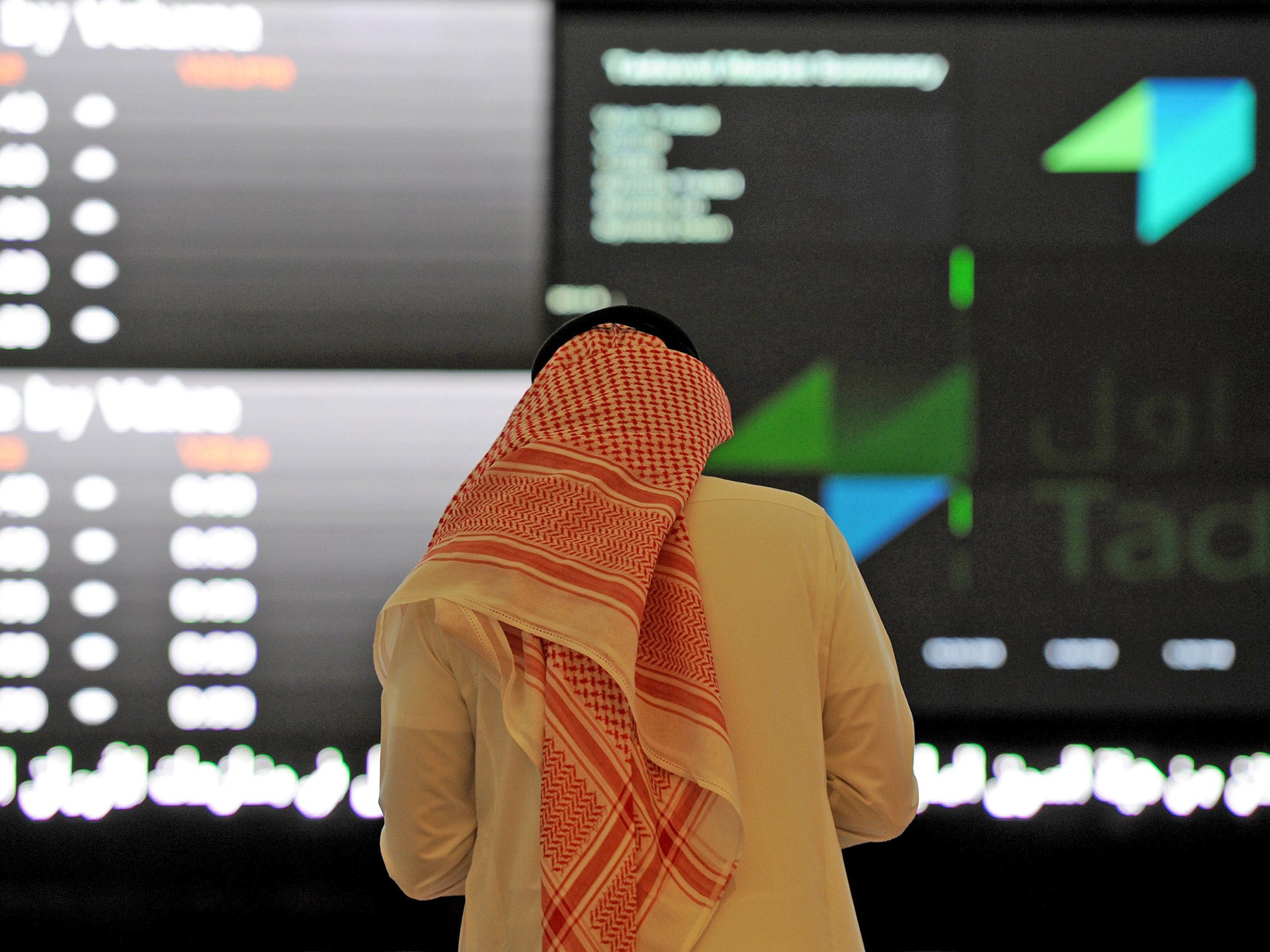Saudi Arabia's troubled economy could bring down ruling House of Saud
Economic View: The collapse of the global oil price since the summer of 2014 has destroyed the Kingdom’s public finances

The smoke from the Middle Eastern firestorm ignited by Saudi Arabia’s execution of a prominent Shia cleric has served to obscure the Kingdom’s economic crisis. On Wednesday, the US Secretary of State John Kerry launched a frenetic round of telephone diplomacy to attempt to persuade leaders in Saudi Arabia and Iran to step back from edge. But in the medium term, it might well be the economic crisis that matters more.
The collapse of the global oil price since the summer of 2014 has destroyed the Kingdom’s public finances – hardly surprising given it relies on oil sales for 90 per cent of state revenues. The Kingdom’s budget deficit for 2015 ballooned to 15 per cent of its GDP.
The IMF estimated last year that Saudi Arabia needs a global oil price of around $106 (£72) a barrel to balance existing levels of expenditure with revenues. On Wednesday the price dipped below $35 a barrel and shows no signs of recovering – with a glut of Iranian supply expected this year after the sanction-lifting deal between Tehran and Western powers.
To cover its deficit, the Kingdom has been selling its stock of foreign exchange. Reserves worth $746bn in August 2014 have now fallen to $646bn. The IMF predicted last year that it would run out of foreign exchange reserves in just five years.
The Kingdom has finally taken corrective action. Last year it issued debt for first time and in December it unveiled an “austerity” budget. But austerity is a relative concept; Saudi citizens pay no income tax. Petrol and energy are dirt cheap, thanks to state subsidies. The Saudi government’s savings were dominated by cuts in planned building projects.
Many argue high welfare spending is needed to keep a lid on tribal dissent. Saudi also has a potential generational powder keg to worry about. Youth unemployment is high, with almost a third of 15 to 24-year-olds out of work. And with almost half of Saudi’s 31 million population under 24, the potential for unrest if living standards are squeezed is obvious.
Amid the cuts, defence spending been protected. It has been growing strongly ever since the 2011 Arab uprisings as Saudi anxiety over rising Iranian influence in Syria, Lebanon, Iraq and Yemen has grown.
The currency is the most exposed financial pressure point. Some warn that the Saudi riyal’s three-decade-old peg with the US dollar will come under unbearable pressure if it continues to lose foreign exchange reserves at the current rate. Other oil producers such as Azerbaijan and Russia have had to abandon their pegs since the oil price collapse. Traders have been selling the Saudi currency short in expectation of a rupture.
There are doubts over economic strategy too, with rumours of a government rift over the long-standing policy of maintaining the Kingdom’s oil production to keep the oil price low and to push high-cost American shale oil producers out of business. The policy is unpopular with Sunni allies in Oman, Bahrain, Kuwait and the UAE.
There is uncertainty about who is calling the shots – and where things are going. The veteran head of the oil ministry, Ali Al-Naimi, is due to retire. He is a technocrat, not a Saudi royal family member. But there is chatter that he could be succeeded by Abdulaziz bin Salman, one of King Salman’s sons – whose brother, Mohamed bin Salman, 30, is already seen as the real power in the Kingdom.
“You might see oil markets getting worried that ruling family politics could start to impinge on oil decisions,” argues Jane Kinninmont of the Chatham House think tank. “What is it that keeps their relations with the US on such a harmonious basis? It’s the perception that they are responsible players in the international oil market – that they’re not going to go back to the 1970s and use oil as a weapon.”
Losing US support would be an economic catastrophe – one that could consume the House of Saud.
Join our commenting forum
Join thought-provoking conversations, follow other Independent readers and see their replies
Comments
Bookmark popover
Removed from bookmarks